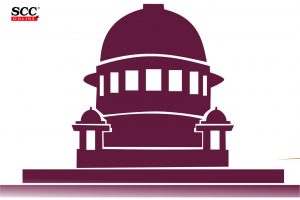Supreme Court: The 3-judge bench of SA Bobde, CJ and AS Bopanna and V. Ramasubramanian, JJ has refused to interfere with Allahabad High Court’s decision quashing Dr. Kafeel Khan’s detention.
The Court has, however, made clear that the observations in the judgment will not determine the outcome of the prosecution and that the criminal cases will be decided on their own merits.
After the Citizenship Amendment Act received President of India’s assent on December 12, 2019, which triggered protests across several parts of the country, Dr. Kafeel Khan and Dr. Yogendra Yadav addressed a gathering of protesting students at Aligarh Muslim University, Aligarh. On December 13, 2019, a criminal case was lodged against Dr. Khan under Section 153-A of the Indian Penal Code at Police Station Civil Lines, Aligarh. The offences under Section 153B, 109, 505(2) Indian Penal Code were added subsequently, and Dr. Khan was arrested on January 29, 2020.
Despite the release order by the Chief Judicial Magistrate, Aligarh dated February 10, 2020, Dr. Khan was neither released nor was produced before the Magistrate. Hence, another release order was issued on February 13, 2020.
However, on February 13, 2020 itself the District Magistrate passed an order to detain Dr. Khan in – accordance with National Security Act, 1980 after a request was made for the same by the Deputy Inspector General of Police/Senior Superintendent of Police, Aligarh.
The Allahabad High Court, in its judgment dated 01.09.2020, calling the detention illegal, said,
“In absence of any material indicating that the detenue continued to act in a manner prejudicial to public order from 12.12.2019 up to 13.02.2020 or that he committed any such other or further act as may have had that effect, the preventive detention order cannot be sustained. In fact, the grounds of detention are silent as to public order at Aligarh being at risk of any prejudice in February, 2020 on account of the offending act attributed to the detenue of the date 12.12.2019. What remains is a mere apprehension expressed by the detaining authority without supporting material on which such apprehension may be founded.”
The High Court also noticed that the grounds for detention along with material were to be supplied to Dr. Khan in light of clause (5) of Article 22 of the Constitution of India enabling him to submit representation to the competent authorities at earliest. However, the material so given was a compact disk of the speech delivered by Dr. Kafeel Khan on December 12, 2019 at Bab-e-Syed gate of Aligarh Muslim University. No transcript of the speech was supplied to the detenue. The High Court hence observed,
“The non-supply of transcript would have been of no consequence, if a device would have been supplied to the detenue to play the compact disk. It is the position admitted that no such device was made available to the detenue.”
Further, noticing that the orders of extension were never served upon the detenue, the High Court concluded that neither detention of Dr. Kafeel Khan under National Security Act, 1980 nor extension of the detention are sustainable in the eye of law.
It is pertinent to note that Dr. Kafeel Khan was also arrested in September, 2017 after an unfortunate incident resulted into the deaths of 50 children 2017 due to unexpected shortage in supply of liquid oxygen at the B.R.D. Medical College, Gorakhpur in the intervening night of 10/11 August. Dr. Khan was released on bail in April, 2018 by the Allahabad High Court.
[State of Uttar Pradesh v. Nuzhat Perween, 2020 SCC OnLine SC 1033, order dated 17.12.2020]
For Petitioner: Solicitor General Tushar Mehta
For Respondent: Senior Advocate Indira Jaising

